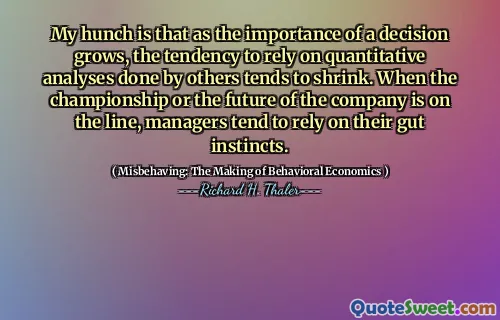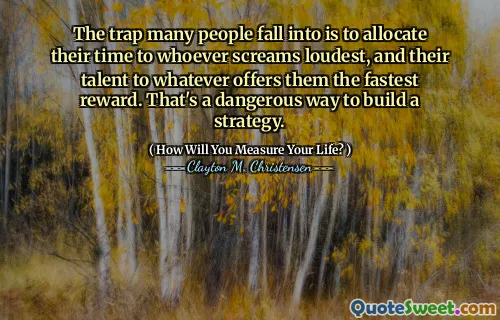
My hunch is that as the importance of a decision grows, the tendency to rely on quantitative analyses done by others tends to shrink. When the championship or the future of the company is on the line, managers tend to rely on their gut instincts.
This quote from Richard H. Thaler's "Misbehaving: The Making of Behavioral Economics" brilliantly highlights a key tension in decision-making processes within organizations and competitive contexts. It underscores a psychological insight that when stakes are high, the reliance on purely quantitative data diminishes, and intuitive judgment often takes precedence. This phenomenon might be explained by factors such as increased pressure, complexity, or the innate human preference for anecdotal experience over abstract numbers when outcomes feel personally significant.
The quote challenges the assumption that rational, data-driven decisions dominate in critical moments, revealing instead the emotional and cognitive biases that surface. It demonstrates how quantitative analyses, despite their objectivity, may be sidelined because they can feel less dependable or less responsive to nuanced human factors. This insight prompts important considerations about how organizations frame decision-making processes and the value of gut instincts alongside empirical data.
Moreover, this perspective aligns with behavioral economics’ broader themes, which question the classical notion of humans as perfectly rational agents. Managers’ gut feelings, informed by experiential knowledge or subconscious pattern recognition, often encapsulate complex factors that raw data might not capture fully. However, this reliance can be a double-edged sword—while intuition can lead to innovative or timely decisions, it also poses risks of bias or error.
In conclusion, the quote invites us to appreciate the nuanced interplay between quantitative analysis and human intuition, especially under pressure. A balanced approach that respects both may lead to the best decision outcomes, acknowledging the profound behavioral dimensions behind seemingly straightforward business judgments.





